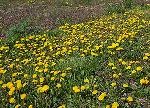Those common outdoor allergens like pollen, mold spores, and ragweed affect a majority of people in the United States today. Having an awareness of these allergens as well as a basic plan should you experience problems can go a long way toward remaining mainly symptom free.
Here we will outline the typical seasons that outdoor allergens will really be flying around. This will hopefully help you prepare ahead of time so you can enjoy the outdoors without being overly affected by those troublesome symptoms.






Comments